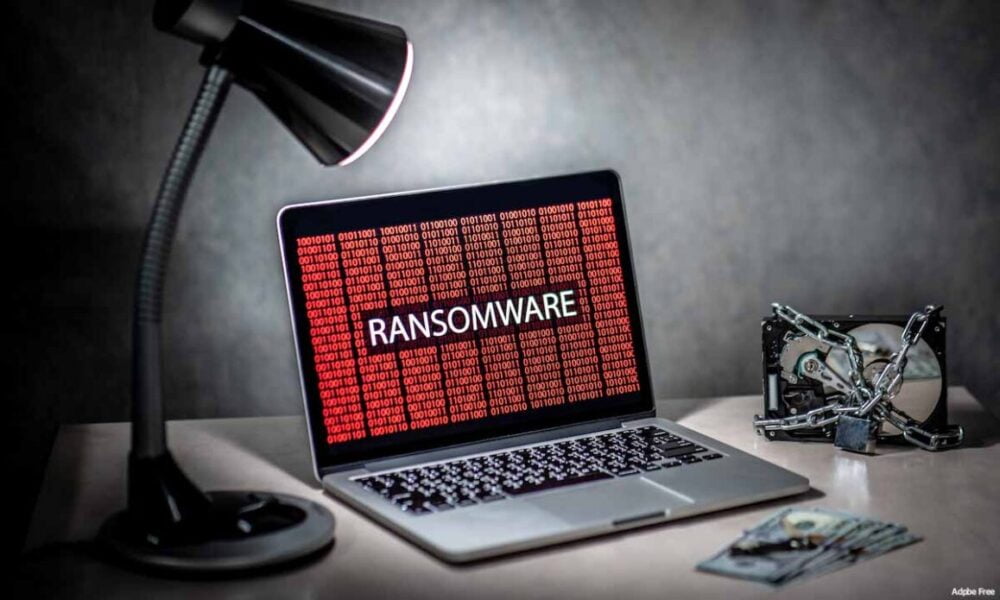Management
Top 10 Causes of Data Loss!

Data loss is a severe problem for businesses; in some cases, the data is not recoverable. Data loss can happen in many ways, from accidental deletion to hardware or software failure, data corruption, or a cyberattack.
Cyberattack
A cyberattack is now probably considered the most common cause of data loss. When hackers can access sensitive information, they can also delete or modify the data to cause confusion and chaos within an organization. Hackers have a huge incentive, a handsome payout or ransom payment. It’s worth knowing about Ransomware as it is prolific today.
Ransomware
Ransomware is malware used to extort money from the victim by holding their data hostage.
Ransomware is a type of malware that has been around since 1989, but it’s only in the last decade that it has become a severe problem. It’s believed to have first surfaced as an email attachment called “AIDS-O-Rama” and was designed to steal passwords and credit card numbers from infected computers.
The first ransomware attack on a large scale occurred in 2013 with the release of CryptoLocker, which encrypted files on the victim’s computer and demanded payment for restoration. In 2016, Ransomware became much more prevalent with WannaCry, which infected 230 000 computers in over 150 countries worldwide in just one day.
However, we can not pin all data loss occurrences on cybercrime and did you know human error still accounts for most occurrences of data loss?
Data can also be lost due to accidental deletion, hardware or software failure or human error.
1. Oops! I’ve accidentally deleted my data!
Does this line sound familiar? Lots of people accidentally delete their data from the hard drive; sometimes, the deletion is intentional and sometimes unintentional.
Intentional deletion may be noticed when the data is deleted (like you wanted to delete a file, but the moment you deleted it, you realized that you may need it again). On the other hand, unintentional deletion may be unnoticed for a long time until you know that you need the file, but it’s gone already. Therefore, it is advised to be very careful when handling your data and keep an eye on that delete button!
2. I hate computer viruses!
Computer viruses can be very annoying if they’re not dealt with properly. They may result in corruption and loss of your important data. It is always recommended to install a good antivirus solution on your computer and keep it up to date, so you can retaliate against any virus.
3. My files are corrupt
Your files get corrupted because of logical errors caused by software issues, invalid file location entries, and other factors. They may also damage other files and deteriorate them, resulting in data loss. To avoid this, back up all your data to separate disk drives.
4. I’ve damaged my computer hardware!
Your hard drives are susceptible, and any mishandling could physically damage your hard drive platters (which spin at more than 5000 revolutions per minute). This may cause your data to be lost beyond the point of recovery. Handling your hard drive carefully is always recommended, so your precious data stays safe.
5. I’ve accidentally formatted my hard drive! What now?
Some users may have formatted their hard drives accidentally, which caused instant loss of data. But don’t worry, this problem can be tackled, and your data can be retrieved. Just be sure not to overwrite your hard disk if you’ve formatted it, and call an expert!
6. My software crashed!
Sometimes when you’re making an important document or editing a photo in a photo editor and suddenly your software halts or crashes, this can damage your drive. You also lose critical unsaved data (which is very annoying).
7. Damn, these electrical problems!
Power failures can cause unsaved data to be lost and may also result in the corruption of files. It is always recommended to frequently save your files while working.
8. I wish I had listened to my hard disk when it was crying for help..
If your hard disk is making noises or experiencing problems like random file removals or your system is often hanging for no reason, well, then it’s time for you to change your hard disk. It’s always advised to keep backing up your data on different disk drives because machines are unpredictable and can fail anytime without prior warning.
9. Mother Nature strikes!
You may lose your data in a natural disaster. Fire, thunderstorms, earthquakes, and floods may cause physical damage to your drives and systems. These strikes are inevitable and unforeseen. Therefore it is always a good idea to back up your data and store it in remote locations.
10. I hate hackers!
Back to the topic of cybercrime and hackers, it is always recommended to use a firewall on your system and keep a check for malicious activities. Losing business or customer data will force you into brand damage control, so any breach doesn’t hurt your business reputation.
Data Loss Prevention
Prevention is a better action to prevent the permanent loss of critical data.
Data loss prevention (DLP) is the process of monitoring, controlling, and protecting data in an organization. In a traditional organization, data is stored in computers, servers, hard drives, and other storage devices. However, these devices are prone to damage and theft.
A DLP solution can help organizations prevent data loss by monitoring access to sensitive areas like HR and finance systems. The solution can also alert staff members when they try to access restricted areas or when sensitive information is accessed by unauthorized parties. By limiting access to employee-owned devices like laptops and smartphones,
DLP can also help organizations prevent sensitive data from getting into the wrong hands. DLP solutions usually come in two forms: centralized and decentralized. Centralized DLP solutions rely on a single point of control for all employees. This approach can be practical if IT staff are vigilant about enforcing rules about who has access to what information.
However, if these rules are not enforced well, it creates an opening for bad actors to steal sensitive data from employees with little risk of getting caught. Decentralized DLP solutions provide individual users with independent access controls over their devices without IT support. These approaches are more flexible but may require additional time and effort to manage user permissions.
Summary
There are many reasons for data loss. In today’s digital world, data is more valuable than ever before. Keeping track of this valuable asset is crucial so organizations can protect it against theft, loss, and misuse. Data Loss Prevention (DLP) is one way to do this, and it involves monitoring all data that comes in and out of an organization. By doing this, companies can prevent unauthorized access to sensitive data while protecting their assets from theft.






